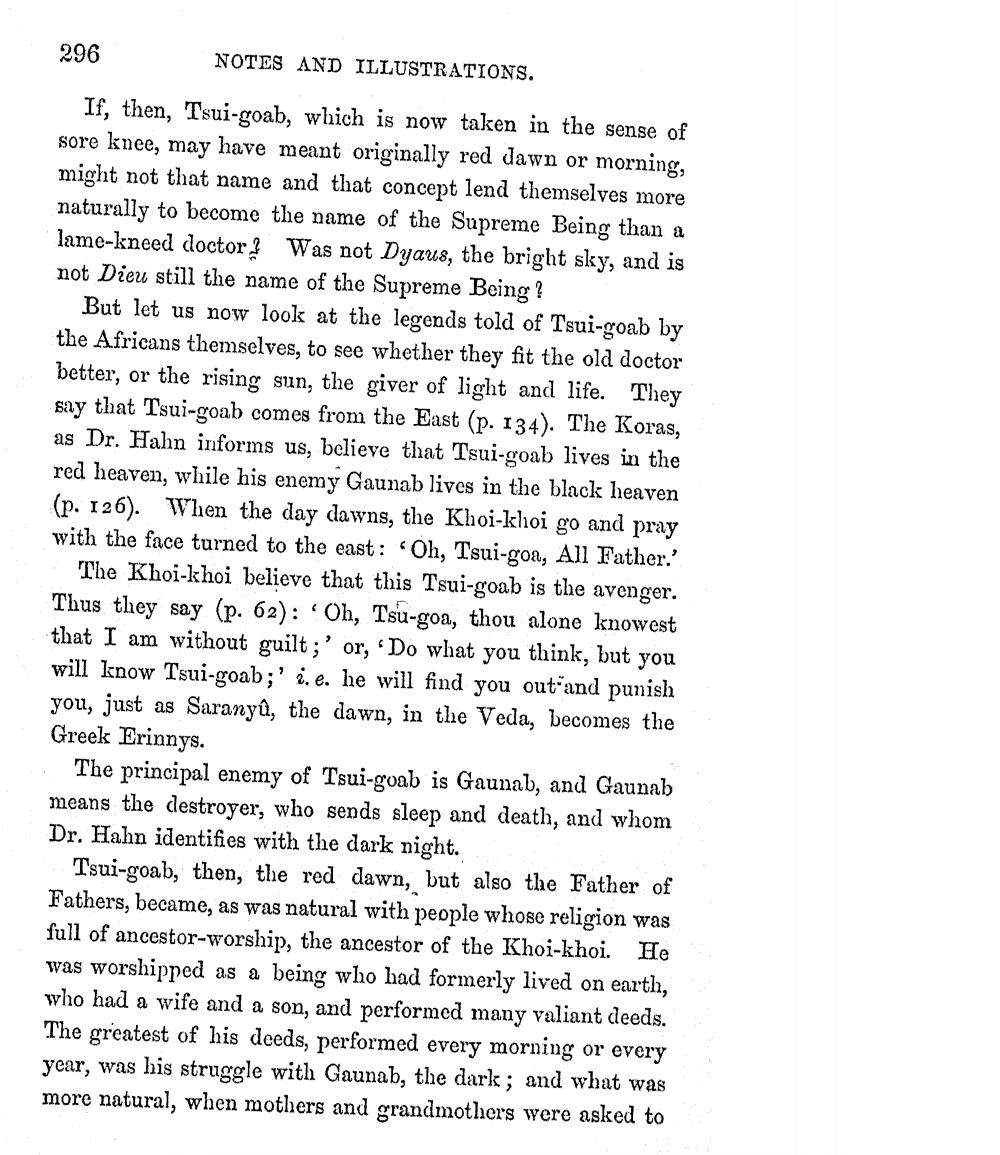________________
296
NOTES AND ILLUSTRATIONS.
If, then, Tsui-goab, which is now taken in the sense of sore knee, may have meant originally red dawn or morning, might not that name and that concept lend themselves more naturally to become the name of the Supreme Being than a lame-kneed doctor was not Dyaus, the bright sky, and is not Dieu still the name of the Supreme Being?
But let us now look at the legends told of Tsui-goab by the Africans themselves, to see whether they fit the old doctor better, or the rising sun, the giver of light and life. They say that Tsui-goab comes from the East (p. 134). The Koras, as Dr. Hahn informs us, believe that Tsui-goab lives in the red heaven, while his enemy Gaunab lives in the black heaven (p. 126). When the day dawns, the Khoi-klioi go and pray with the face turned to the east : "Oh, Tsui-goa, All Father.'
The Khoi-khoi believe that this Tsui-goab is the avenger. Thus they say (p. 62): Oh, Tsu-goa, thou alone knowest that I am without guilt;' or, "Do what you think, but you will know Tsui-goab;' i.e. he will find you out and punish you, just as Saranyû, the dawn, in the Veda, becomes the Greek Erinnys.
The principal enemy of Tsui-gvab is Gaunab, and Gaunab means the destroyer, who sends sleep and death, and whom Dr. Hahn identifies with the dark night.
Tsui-goab, then, the red dawn, but also the Father of Fathers, became, as was natural with people whose religion was full of ancestor-worship, the ancestor of the Khoi-khoi. He was worshipped as a being who had formerly lived on earth, who had a wife and a son, and performed many valiant deeds. The greatest of his deeds, performed every morning or every year, was his struggle with Gaunab, the dark ; and what was more natural, when mothers and grandmothers were asked to




